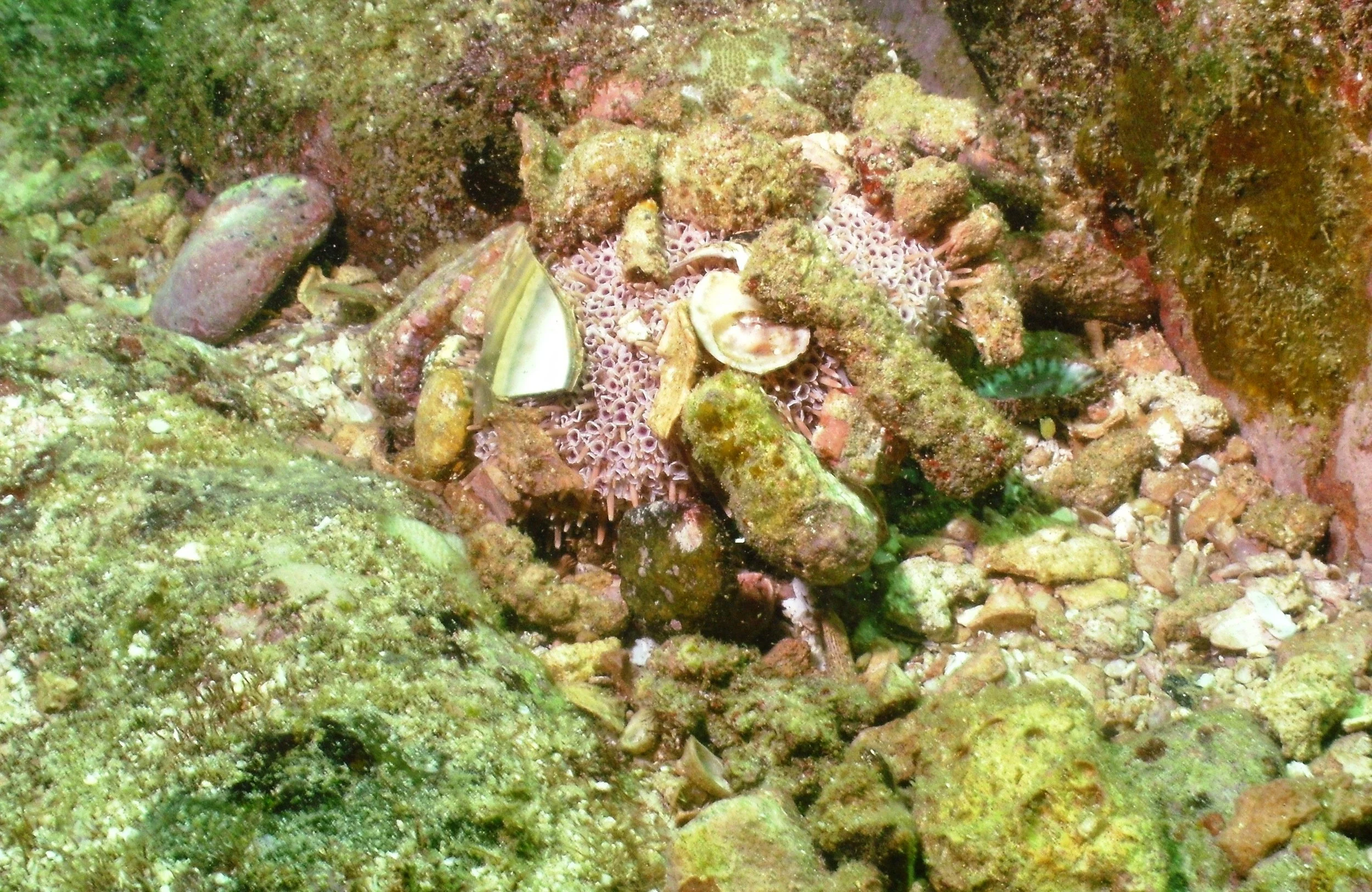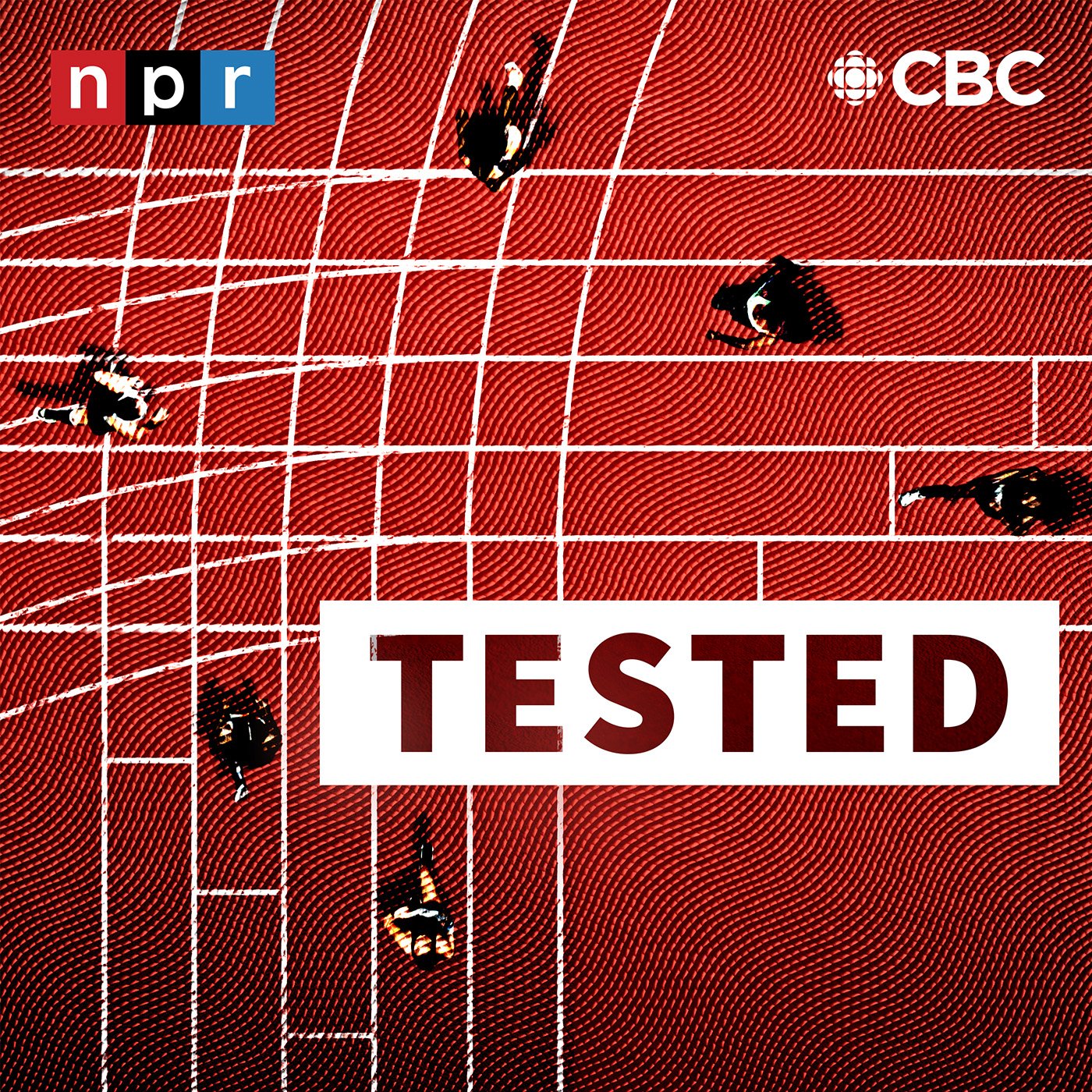Radiolab Presents: Gonads is a multi-episode journey deep into the parts of us that let us make more of us. Longtime staff producer and host Molly Webster explores the primordial roots of our drive to reproduce, introduces a revolutionary fertility procedure that sounds like science fiction, reveals a profound secret about gender that lives inside all of us, and calls on writers, educators, musicians, artists and comedians to debate how we’re supposed to talk to kids about sex.
Trioecy in Pink Sea Urchins
Not all animal species operate on a system of only males and females! Trioecy, when hermaphrodites coexist with females and males in a population, is an understudied reproductive strategy being brought into the spotlight with pink sea urchins in the Mexican Pacific. Valentina Islas-Villanueva and Francisco Benítez-Villalobos brought their research to our attention because they found that trioecy is maintained as a time-stable mating system, not as a one-time coincidence or a disorder. Their work adds to a growing body of evidence about the naturally occurring diversity of sex in living things.
Queerness, science, and the Mistaken Point fossils of Newfoundland
Rhea Rollman highlights a new collaboration of art and queer ecology in Newfoundland Canada, as described in this article for The Independent.
The Evolution and Biology of Sex by Cotner & Wassenberg
"The Evolution and Biology of Sex" by Sehoya Cotner and Deena Wassenberg is the book accompanying their course at the University of Minnesota. The book is accessible from the UMN Libraries library.
For K-12 education, we recommend Chapter 8.4 "Sex: It's About the Gametes". This short article explains how sex is defined by gamete size, why this is useful, and what vocabulary can be used to clearly discuss biological sex.
We have yet to find any modern high school biology textbook that discusses this essential definition--most texts define sex only by human-specific traits or organs, leaving students lacking the broadly applicable tools to make sense of the diversity of the living world.
The entire book is gender-inclusive, sex-positive, and is written for an audience of introductory college biology for non-majors. Thus, it may also be appropriate for high school students.
Interactive: Meiosis in Animal Cells
This interactive from LabXchange has students scroll, click, and learn about meiosis in the context of reproduction. It uses language that is precise and inclusive of diverse human families, while also teaching the concept broadly enough to apply to other living things.
Nature is Gay Podcast by Camryn Martin
Nature is Gay is a weekly podcast all about the queer world around us and just how gosh darn normal it is. Every Monday we explore gender and sexuality in animals, plants, fungi, and everything in between!
TESTED Podcast
TESTED: A Surprising History of Women's Sports is a series produced by CBC, NPR's Embedded, and Bucket of Eels. The series is hosted by Rose Eveleth (they/them).
Through history and the ongoing cases of current athletes, TESTED explores the surprising story of who gets to compete in the women's category of sports.
The TESTED website contains episode transcripts and links for further reading
Common high-school textbooks promote unscientific views on gender
In Science News Explores, Laura Allen summarizes the recent findings of education researchers about errors in describing sex and gender in genetics textbook chapters. This article is student-friendly and discusses common misconceptions perpetuated by science education materials.
Queerly Natural: A Queer Ecology Podcast
Queerly Natural is a science-based podcast about the diversity of sexuality, sex, and gender in the natural world. Join three queer biologists as they chat about the huge array of LGBTQIA+ diversity among animals, plants, fungi, and more.
Episodes are released the first Wednesday of every month. The website contains episode transcripts and timestamps for topics.
Sex and gender are binaries? Sorry, that's a scientific falsehood
In this SF Chronicle piece, Ash Zemenick discusses evidence for biological sex as a continuum rather than a binary. They argue that humans whose chromosomes, gametes, or hormones do not fit into a binary are common and that it is more useful to view them as a form of diversity rather than as an exception to a rule.
Remember Thomas the blind bisexual goose
ID: Thomas, a white goose, with two black swans named Henry and Henrietta. The three adults stand surrounding several gray baby swans sitting in a nest. Thomas played the role of a "doting uncle" to Henry and Henrietta's many children.
Thomas was a New Zealand goose who rose to prominence for his notable relationships and behaviors. He formed close, lasting bonds with both male and female swans and was involved in a "love triangle". Thomas became blind later in life. He reared many children, both his biological children and young orphaned geese and swans.
Below are two article commemorating Thomas’ life, published shortly after his death.
Queer Animals Are Everywhere. Science Is Finally Catching On.
This article by animal studies graduate student Eliot Schrefer for The Washington Post highlights a recent surge in scholarship on same-sex animal behavior which challenges longstanding misconceptions about the connection between animal sexuality and evolution.
Language Drops Visual Dictionary
This visual dictionary by Language Drops is available as a web page or a smartphone app. This can be a useful tool for working with multilingual students. For example, the link below is for a set of words called Words for Gender Pronouns in Arabic.
Dads Also Pass on Mitochondrial DNA, Contrary to Long-Standing Belief
This article from Smithsonian Magazine describes new evidence that some people receive their mitochondrial DNA from the sperm cell rather than the egg cell that made them. This contradicts a longstanding generalization that only egg cells contribute mitochondrial DNA.
This article uses the words mother/maternal and father/paternal to refer to two contributors of genetic material in humans. Consider speaking with your students about other terms that may be more inclusive of all people and their families, such as sperm-derived and egg-derived DNA.
The Intersex Roadshow (Blog)
In this blog, intersex sociologist Dr. Cary Gabriel Costello writes about current intersex issues in historical context.
Intersex people are supposed to lie low and keep quiet. Not me.
I'm not defective, I'm not disordered, I'm not ashamed. I just don't fit in your M/F boxes.
I'm intersex by birth and honest by choice.
Inclusive Zines from the Queer Sex Ed Community Curriculum
Clownfish, a dolphin, a whale, and other fish swim over the title “Sex Diversity in Nature: A brief exploration of sex diversity in the natural world.”
The Queer Sex Ed Community Curriculum is an LGBTQ-led project that is developing inclusive, trauma-informed, and sex-positive resources for use with youth. Their resource library includes zines, posters, and training materials that you can implement in your classroom. Check out the awesome Sex Diversity in Nature Zine, as well as their zine on Deconstructing the Gender Binary.
Transgender Researchers Want to Make an Impact
A female, transgender, and male symbol are written in chalk in the colors of the trans pride flag: pink, white, and blue. Equal signs are drawn between each symbol.
This article from Science News for Students is one way to introduce transgender identity in the science classroom. The article includes explanations of transgender identity and profiles several transgender researchers and how their identity intersects with their work as scientists.
The article is written in student-friendly language, and includes a glossary of “power words” that can be used as an additional learning tool.
Nature is Queer! Infographic
Check out this awesome infographic focused on diversity in the natural world created by Theo Bamberger, a graduate student working towards their Master’s of Education at the University of Washington. It highlights parallels between diverse expressions of gender and sexuality in nature with the diversity in human experiences.
Sex Redefined: The Idea of 2 Sexes Is Overly Simplistic
In this Scientific American article, Claire Ainsworth, discusses evidence for the spectrum model of biological sex using introductory language.
You don't have a male or female brain – the more brains scientists study, the weaker the evidence for sex differences
Lise Eliot of the Rosalind Franklin University of Medicine and Science addresses common misconceptions about differences between male and female brains. She reviewed 30 years of research on human brain sex differences and found that almost none of these claims are reliable. This article addresses claims of difference in brain size and composition in both humans and animals. Eliot discusses what this data means for nonbinary and transgender people.




















